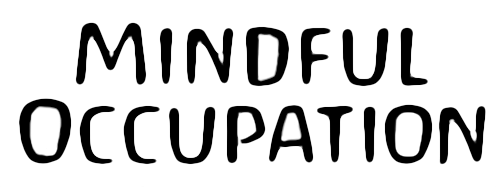Connecting Radical Mental Health and Occupy
It’s easy to see connections between radical mental health and the Occupy movement. After all, both movements are challenging the objectification of persons and nature at large. In the radical mental health movement, we raise our voices against the mainstream mental health system in which our complex experiences are objectified into labels that fit cookie-cutter understandings of mental health. In the Occupy movement, we raise our voices against the corporate-centered culture where our lives are treated as objects whose purpose is to bring financial gain to corporations.
The injustice in the mental health system closely intertwines with the injustice that results from corporatocracy. To begin with, our mental distress is always inseparable from the socioeconomic circumstances that we are in. Further, pharmaceutical corporations exploit our insecurities as an opportunity for revenue growth. In addition to advertising drugs as an effective tool to fix a “chemical imbalance,” corporate influence corrupts the powers that be in the mental health system. Time and again we find out about financial ties between pharmaceutical companies, researchers, and members of the working groups for the Diagnostic and Statistical Manual of Mental Disorders (DSM) that is used to categorize and pathologize our psyches. Moreover, the government does little to regulate corporate greed, as the Food and Drug Administration (FDA) relies on research conducted by the pharmaceutical corporations when approving new drugs. These corporations are driven to maximize shareholder value, rather than follow the Hippocratic Oath to “do no harm.”
When corporations that prioritize productivity over community are culturally and politically sanctified, challenging the status quo seems all the more difficult. However, through social protest—whether with Occupy or radical mental health—we take a step against the accepted paradigm to reclaim our humanity and community. Given that we are putting our real selves on the line, we may become stressed. We may be hurt. We may be traumatized. That is why it is important to learn how to give and take care of ourselves, through mutual support and community. It’s fundamentally important to try to match our process in doing this work with the product that we are collectively seeking.
(Un)Occupying Violence
The Occupy movement weaves together the struggles of communities who refuse to go on carrying the burdens of an unjust economic structure; burdens that land especially in bodies that are poor, of color, female, queer, trans, and/or differently abled.
And burdens that can manifest as madness.
Yet, backed by a medico-industrial complex that profits from turning injustice into sickness, these mad expressions are framed as an individual’s “mental illness,” diverting critical attention from our crazy- making world. Such mainstream approaches are therefore both product and tool of imperialism, capitalism, neoliberalism, and securitization; those very systems that many within Occupy are striving to undo.
It follows that madness connects deeply with Occupy. Yet, conflated with aggression, it is instead increasingly seen as a threat that needs to be screened out or eliminated. Such an approach ignores that the vast majority of madness is not violent (in fact, madness is much more affiliated with surviving violence) and that the vast majority of violence is considered “rational” (the violent actions of the state, corporations, white supremacy, and patriarchy, for example). In addition, sentiments within Occupy which criminalize and scapegoat ‘the crazies’ often seem to be primarily targeted towards participants who are homeless and/or people of color. These sentiments are racist and classist assumptions, distracting from the ever-present threat of police brutality, and depicting Occupy as divided and unstable to “the outside.”
As a site of solidarity, violence of all kinds is clearly not okay within Occupy; there needs to be a process of accountability for harmful words and actions. However, violence does not have to be diagnosed as “mental illness,” and would benefit from being addressed in consultation with the communities who are being blamed.
We are working hard to create a space within Occupy for diverse connections, particularly as mad voices disproportionately represent bodies already marginalized and policed by society. We have been organizing for mad justice, and offering social and emotional support on site to all protesters—no matter what form their protest takes— through written materials, teach-ins, counseling, peer support, medic training, and community building.
Using a lens of diversity, protest, and community, radical psych sees madness as containing seeds of expertise, imagination, and change. It offers learning and growth to Occupy, and deserves to be actively included (not just tolerated) in “the 99 percent.” For we all desire, require revolution.
